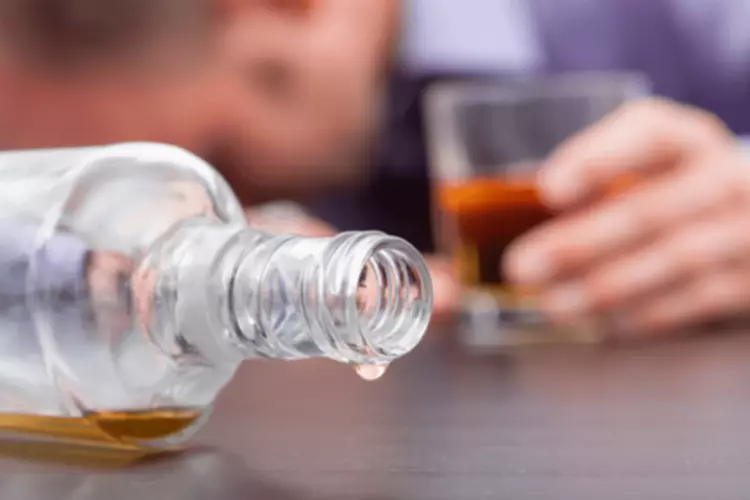An allergic reaction might not occur the first time a person encounters an allergen. However, they can come on suddenly, and a person could develop an alcohol allergy at any point in their life. In some cases, reactions can be triggered by a true allergy to a grain such as corn, wheat or rye or to another substance in alcoholic beverages. Having a mild intolerance to alcohol or something else in alcoholic beverages might not require a trip to a doctor. Simply avoid alcohol, limit how much you drink or avoid certain types of alcoholic beverages. One of the most common causes of dry heaving is drinking excessive amounts of alcohol.
- Talk with a healthcare professional if you’re concerned you may experience detox symptoms when quitting drinking or cutting back.
- In contrast, an alcohol allergy could become life threatening.
- Avoiding problematic ingredients or taking a supplement to reduce acetaldehyde buildup and intolerance symptoms can help prevent nasal congestion from drinking.
- Those with a wider circle of support have a better chance of staying sober.
- Prescription nasal antihistamines can help relieve sneezing, postnasal drip, and congestion.
- Learn the signs and symptoms to keep an eye out for and why certain drinks might affect you more than others.
Alcohol Intolerance Can Contribute to Nasal Congestion After Drinking Alcohol
From month-long sobriety challenges to the Sober Curious movement, more and more people are taking a closer look at the role alcohol plays in their lives. Dry heaving, or retching, refers to going through the motions of vomiting without actually throwing up. If you don’t already have a supportive network, you can make new connections by joining social media communities dedicated to alcohol-free living. Sneezing is just one of your body’s many natural defense mechanisms.
Why Do I Get Stuffy Nose & Nasal Congestion After Drinking Alcohol?
Unstable vital signs increase the risk of complications and can be managed with medications. People who experience severe withdrawal symptoms or DTs may require hospitalization or intensive care unit (ICU) treatment during alcohol. Alcohol allergies can cause your throat to feel tight, as if it’s closing up a bit.
Avoid loneliness.
Applying a cold compress to your nose will help to soothe the mucous membranes in your nose and reduce inflammation. Aldehyde dehydrogenase (ALDH2) is an enzyme that your body uses to digest alcohol. It turns alcohol into acetic acid, a main component of vinegar, in your liver.
- However, some people experience nausea and vomiting longer or even until delivery.
- The blood vessels around your nasal cavity can expand, making it a bit more difficult to breathe normally.
- Some people with Hodgkin’s lymphoma experience pain after drinking alcohol.
- This is another method for trying to stifle a sneeze just before it happens.
- If you have alcohol intolerance, your digestive system doesn’t process alcohol properly.
- He worked as a bartender instructor for many years, teaching people how to make cocktails like a pro.
Top doctors in ,
These steroid nasal sprays are available over-the-counter under brand names such as Flonase Allergy Relief and Nasacort. The maximum effect won’t be achieved for several days or weeks. Like antihistamines, these sprays are most effective if they’re used regularly. Prescription nasal antihistamines can help relieve sneezing, postnasal drip, and congestion. However, they are more effective if they’re used regularly. In addition, a severe reaction called anaphlyaxis can occur.
- The dilation then extends to blood vessels throughout your body, including those in your nose.
- This will help to soothe the mucous membranes in your nose and prevent them from swelling and triggering a sneeze.
- However, for a severe skin reaction, weak pulse, vomiting or trouble breathing, seek emergency help right away, as you could be having an anaphylactic reaction.
This can lead to sneezing as well as a runny or stuffy nose. In some people, drinking alcohol may also trigger an allergic reaction, which can cause sneezing and other symptoms. You might also sneeze during drinking if you have low alcohol tolerance, so it’s important to know this before having a drink. Alcohol beverages like beer are made from complex mixtures of grains, chemicals, and preservatives your body needs to break down. If you have a true alcohol allergy, even small amounts of alcohol can cause symptoms. Combining alcohol with certain medications also can cause reactions.
Behavioral health treatment for alcohol problems is often (but not always) covered by insurance. In the United States, most states have low-cost or free rehabilitation programs for those who are uninsured. Research shows people who have a supportive social network are more likely to remain alcohol-free after withdrawal. Those with a wider circle of support have a better chance of staying sober. However, try not to have too many firm expectations, as symptoms can continue for multiple weeks in some people.
Examine alcohol health effects
But in rare cases, they become painful after alcohol consumption. Histamine is a chemical that occurs naturally in your body. It’s also found in many foods and beverages, especially fermented products.
These blood vessels fill the tissue that lines the inside of the nose. For instance, the nerve endings in the nose might react alcohol sneezing to triggers too easily. Ok, so now that we’ve answered the question – why does my nose get stuffy when I drink? – it’s time to determine whether this is really a cause for concern or not.










